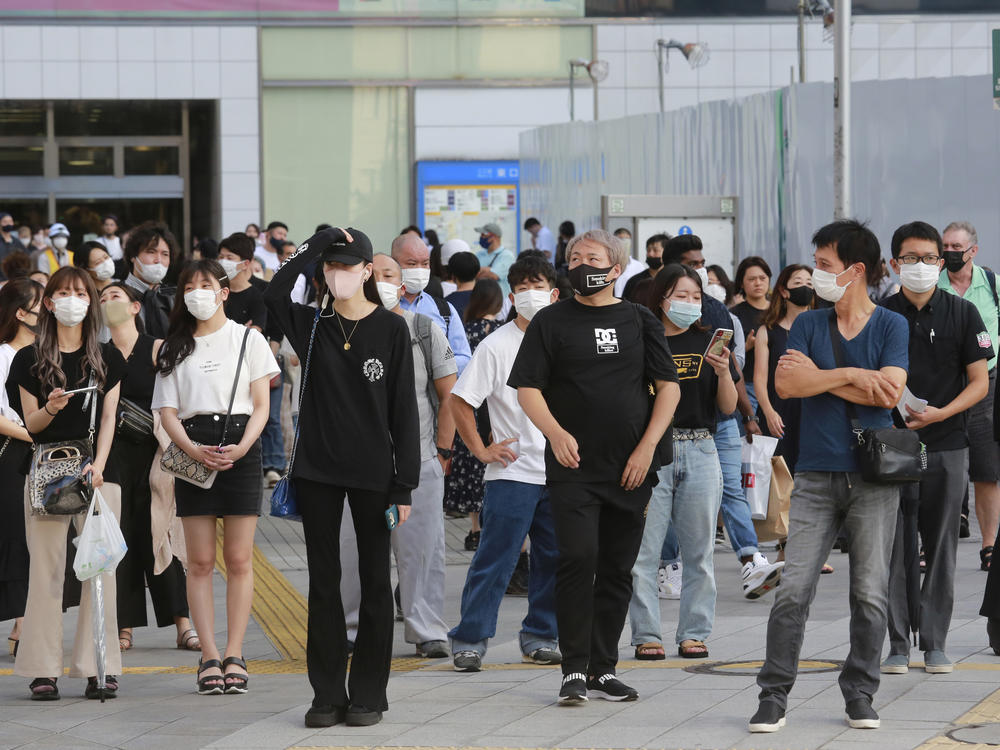Section Branding
Header Content
With All Eyes On Tokyo, The City Has Just Hit A New High In COVID-19 Cases
Primary Content
The timing couldn't be worse: with Tokyo the focus of world attention after the start of the long-delayed Olympic Games, health officials in the Japanese capital report a never-before-seen daily count in coronavirus infections.
On Tuesday, Tokyo's metropolitan government confirmed 2,848 cases, a number that surpasses the previous high of 2,520 cases on Jan. 7. Since even before the opening ceremony for the Games last week, the number of new infections has been trending up. Less than a week ago, the daily count was at just over 1,800.
Tuesday's record marked the eighth consecutive day that daily increases exceeded 1,000 for the city, which postponed the Games last year due to the ongoing pandemic, but forged ahead this year amid a state of emergency and without spectators as a precaution against the spread of COVID-19.
Broadcaster TBS said Tuesday that Tokyo hospitals were preparing more beds to cope with the surge. The hospitals were also reportedly postponing planned surgeries.
As recently as May, public opinion polls showed that a large majority of Japanese didn't want the Olympics to proceed due to the pandemic. Protesters gathered outside the Olympics opening ceremony on Friday to loudly demonstrate their anger that the Games were going ahead despite the danger they might pose to public health.
Meanwhile, Olympics organizers reported Monday that three athletes were among 16 new coronavirus cases linked to the Games bringing the total since July 1 to 148, according to Reuters.
The news agency reports that support for Japan's prime minister, Yoshihide Suga, who faces election this year, has suffered over the decision to go ahead with the Games and the public's perception that the rollout of COVID-19 vaccines in Japan has been inadequate.
Copyright 2021 NPR. To see more, visit https://www.npr.org.

